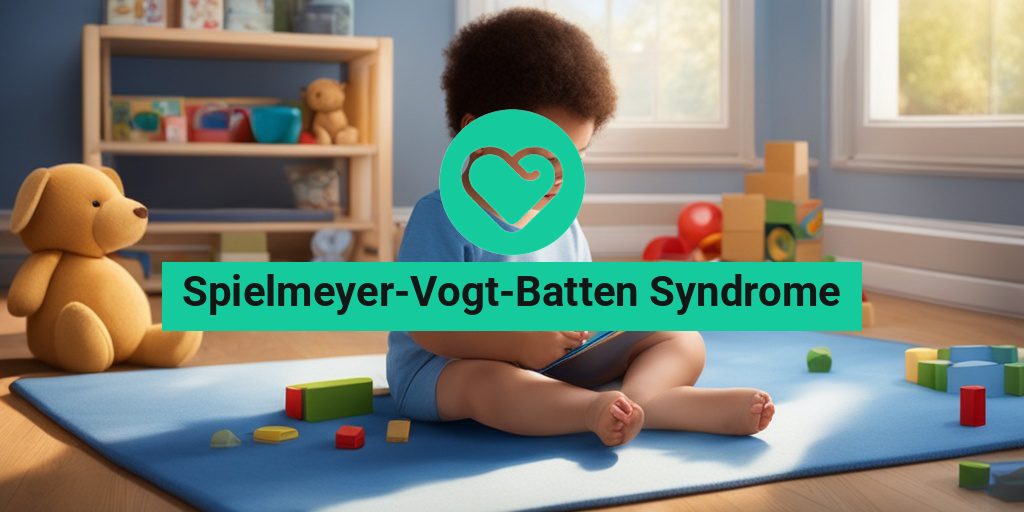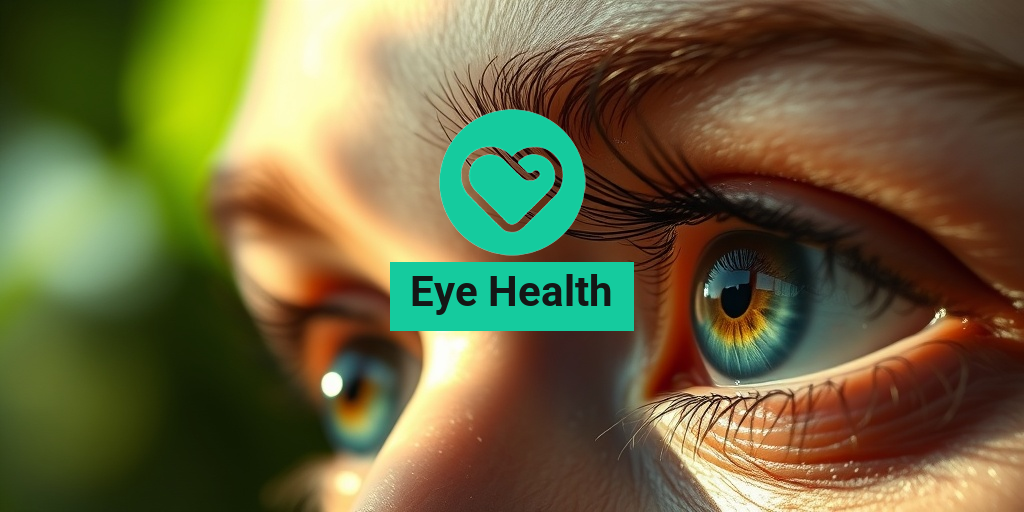“`html
What Is Spielmeyer-Vogt-Batten Syndrome?
Spielmeyer-Vogt-Batten Syndrome, often simply referred to as Batten disease, is a rare and progressive neurodegenerative disorder that primarily affects children. It is classified as a type of neuronal ceroid lipofuscinosis (NCL), which is a group of inherited disorders characterized by the accumulation of lipopigments in the body’s tissues. This syndrome is named after the researchers who first described it, and it is one of several forms of Batten disease.
As a genetic disorder, Spielmeyer-Vogt-Batten Syndrome is caused by mutations in specific genes that are responsible for the production of proteins necessary for cellular function. These mutations lead to the buildup of toxic substances in the brain and other tissues, resulting in a range of debilitating symptoms.
Causes of Spielmeyer-Vogt-Batten Syndrome
The primary cause of Spielmeyer-Vogt-Batten Syndrome is genetic mutations, typically inherited in an autosomal recessive manner. This means that a child must inherit two copies of the mutated gene—one from each parent—to develop the condition. The most common genes associated with this syndrome include:
- CLN1 – This gene is responsible for encoding a protein that helps break down certain fats in the body.
- CLN3 – Mutations in this gene are linked to the juvenile form of Batten disease.
Understanding the genetic basis of this syndrome is crucial for diagnosis and potential future treatments, including gene therapy.
Symptoms of Spielmeyer-Vogt-Batten Syndrome
The symptoms of Spielmeyer-Vogt-Batten Syndrome typically manifest in early childhood, often between the ages of 2 and 4. As the disease progresses, symptoms can worsen, leading to significant challenges for affected individuals and their families. Here are some of the most common symptoms:
Early Symptoms
- Vision Problems: One of the earliest signs is often vision loss, which can include difficulty seeing in low light or complete blindness.
- Seizures: Many children with this syndrome experience seizures, which can vary in type and severity.
- Developmental Delays: Affected children may show delays in reaching developmental milestones, such as walking or talking.
Progressive Symptoms
As the disease progresses, additional symptoms may develop, including:
- Motor Skills Decline: Children may experience a decline in motor skills, leading to difficulties with coordination and balance.
- Cognitive Decline: Cognitive abilities may deteriorate, resulting in memory loss and challenges with learning.
- Behavioral Changes: Changes in behavior, such as increased irritability or mood swings, can also occur.
Life Expectancy and Prognosis
The life expectancy for individuals with Spielmeyer-Vogt-Batten Syndrome varies, but many affected children may only live into their late teens or early twenties. The progression of the disease can be unpredictable, and while some may experience a slower decline, others may face more rapid deterioration. Supportive care and early intervention can help manage symptoms and improve quality of life.
For families navigating the complexities of this condition, resources like Yesil Health AI (yesilhealth.com) can provide valuable, evidence-based health answers and support.
In conclusion, understanding Spielmeyer-Vogt-Batten Syndrome is crucial for early diagnosis and intervention. While the journey can be challenging, awareness and education can empower families to seek the best possible care for their loved ones. 🌟
“`

“`html
Causes and Risk Factors
Spielmeyer-Vogt-Batten Syndrome, also known as Batten disease, is a rare genetic disorder that primarily affects children. Understanding the causes and risk factors associated with this condition is crucial for early diagnosis and management.
Genetic Causes
The primary cause of Spielmeyer-Vogt-Batten Syndrome is genetic mutations. Specifically, it is linked to mutations in the CLN3 gene, which is responsible for producing a protein that plays a vital role in cellular function. When this gene is mutated, it leads to the accumulation of waste products in the cells, particularly in the brain, which ultimately results in neurodegeneration.
Inheritance Patterns
This syndrome follows an autosomal recessive inheritance pattern. This means that a child must inherit two copies of the mutated gene—one from each parent—to develop the condition. Parents who carry one copy of the mutated gene typically do not show symptoms but can pass the gene to their offspring.
Risk Factors
While the genetic aspect is the primary risk factor, there are a few additional considerations:
- Family History: A family history of Batten disease increases the likelihood of the condition being passed on to children.
- Ethnicity: Certain populations, particularly those of Northern European descent, have a higher prevalence of the disease.
- Age: Symptoms typically appear in childhood, usually between the ages of 5 and 10, making early detection crucial.
Diagnosis of Spielmeyer-Vogt-Batten Syndrome
Diagnosing Spielmeyer-Vogt-Batten Syndrome can be challenging due to its rarity and the overlap of symptoms with other neurological disorders. However, a combination of clinical evaluation and advanced testing can lead to an accurate diagnosis.
Clinical Evaluation
The diagnostic process often begins with a thorough clinical evaluation by a healthcare professional. This includes:
- Medical History: Gathering information about the child’s symptoms, family history, and any developmental delays.
- Physical Examination: Assessing neurological function, vision, and motor skills to identify any abnormalities.
Genetic Testing
Once a clinical evaluation suggests the possibility of Spielmeyer-Vogt-Batten Syndrome, genetic testing is typically recommended. This testing can confirm the presence of mutations in the CLN3 gene. It is a crucial step in establishing a definitive diagnosis and can also provide valuable information for family planning.
Additional Diagnostic Tools
In addition to genetic testing, other diagnostic tools may be employed:
- Electroretinography (ERG): This test evaluates the function of the retina and can help identify vision problems associated with Batten disease.
- Brain Imaging: MRI or CT scans can be used to assess brain structure and detect any abnormalities.
- Neurological Assessments: Comprehensive tests to evaluate cognitive function, motor skills, and behavioral changes.
Early diagnosis of Spielmeyer-Vogt-Batten Syndrome is essential for managing symptoms and improving the quality of life for affected individuals. If you suspect that your child may be showing signs of this condition, it is important to consult with a healthcare professional for further evaluation and testing. 🩺
“`

“`html
Treatment Options Available
Spielmeyer-Vogt-Batten Syndrome, also known as Batten disease, is a rare and progressive neurological disorder that primarily affects children. While there is currently no cure for this condition, various treatment options can help manage symptoms and improve the quality of life for those affected. Here, we explore some of the most common treatment strategies.
Medications
Medications play a crucial role in managing the symptoms of Spielmeyer-Vogt-Batten Syndrome. Some of the common medications include:
- Antiepileptic drugs: Seizures are a common symptom, and medications like levetiracetam or lamotrigine can help control them.
- Psychotropic medications: These may be prescribed to manage behavioral issues or mood disorders that can arise due to the disease.
- Supportive therapies: Medications that help with muscle spasms or other physical symptoms may also be utilized.
Therapies
In addition to medications, various therapies can significantly enhance the quality of life for individuals with Spielmeyer-Vogt-Batten Syndrome:
- Physical therapy: This helps maintain mobility and strength, allowing individuals to perform daily activities more easily.
- Occupational therapy: Occupational therapists can assist in adapting tasks and environments to better suit the needs of those affected.
- Speech therapy: As communication can be impacted, speech therapy can help improve verbal skills and facilitate better communication.
Supportive Care
Supportive care is essential for managing the overall well-being of individuals with Spielmeyer-Vogt-Batten Syndrome. This includes:
- Nutritional support: A balanced diet is vital, and in some cases, dietary supplements may be recommended to ensure proper nutrition.
- Palliative care: This focuses on providing relief from symptoms and improving the quality of life, especially in advanced stages of the disease.
- Family support: Counseling and support groups can be beneficial for families coping with the emotional and practical challenges of the disease.
Research and Clinical Trials
Ongoing research is crucial in the fight against Spielmeyer-Vogt-Batten Syndrome. Clinical trials are exploring new treatments, including gene therapy and enzyme replacement therapy, which may offer hope for future advancements. Staying informed about these developments can provide families with options that may not be widely available yet.
Living with Spielmeyer-Vogt-Batten Syndrome
Living with Spielmeyer-Vogt-Batten Syndrome presents unique challenges for both individuals and their families. Understanding these challenges and finding ways to cope can make a significant difference in daily life.
Daily Life Adjustments
Adapting to the symptoms of Spielmeyer-Vogt-Batten Syndrome often requires significant changes in daily routines:
- Creating a safe environment: As mobility may be affected, ensuring a safe living space is essential to prevent falls and injuries.
- Routine establishment: Consistent daily routines can help individuals feel more secure and reduce anxiety.
- Assistive devices: Utilizing tools such as wheelchairs, communication devices, or visual aids can enhance independence.
Emotional and Psychological Support
The emotional toll of living with a progressive condition like Spielmeyer-Vogt-Batten Syndrome can be significant. Here are some ways to seek support:
- Therapy and counseling: Professional support can help individuals and families process their feelings and develop coping strategies.
- Support groups: Connecting with others facing similar challenges can provide a sense of community and shared understanding.
- Open communication: Encouraging open discussions about feelings and fears within the family can foster a supportive environment.
Engaging in Activities
Despite the challenges, it’s important to engage in enjoyable activities. Here are some ideas:
- Adaptive sports: Many organizations offer adaptive sports programs that allow individuals to participate in physical activities.
- Art and music therapy: Creative outlets can be therapeutic and provide a means of expression.
- Family outings: Planning outings that accommodate the needs of the individual can create lasting memories.
Living with Spielmeyer-Vogt-Batten Syndrome requires resilience and adaptability. By exploring treatment options and finding ways to enhance daily life, individuals and families can navigate this journey with hope and support. 🌈
“`

“`html
Research and Future Directions
Spielmeyer-Vogt-Batten Syndrome, often simply referred to as Batten disease, is a rare neurodegenerative disorder that primarily affects children. As research continues to evolve, understanding the complexities of this condition is crucial for developing effective treatments and improving the quality of life for those affected. In this section, we will explore the latest research findings and potential future directions in the study of Spielmeyer-Vogt-Batten Syndrome.
Current Research Trends
Recent studies have focused on several key areas:
- Genetic Studies: Advances in genetic research have identified specific mutations associated with Spielmeyer-Vogt-Batten Syndrome. Understanding these genetic factors is essential for developing targeted therapies.
- Biomarker Discovery: Researchers are actively searching for biomarkers that can help in early diagnosis and monitoring of disease progression. Early detection is vital for implementing interventions that may slow down the disease.
- Therapeutic Approaches: Various therapeutic strategies are being explored, including gene therapy, enzyme replacement therapy, and pharmacological treatments aimed at alleviating symptoms and improving neurological function.
Clinical Trials and Innovations
Clinical trials play a pivotal role in advancing our understanding of Spielmeyer-Vogt-Batten Syndrome. These trials are essential for testing new treatments and therapies. Some notable innovations include:
- Gene Therapy: This approach aims to correct the underlying genetic defects causing the disease. Early trials have shown promise, with some patients experiencing stabilization of symptoms.
- Stem Cell Therapy: Researchers are investigating the potential of stem cells to regenerate damaged neurons and restore lost functions.
- Drug Development: New drugs targeting specific pathways involved in neurodegeneration are being developed and tested in clinical settings.
Future Directions
The future of research on Spielmeyer-Vogt-Batten Syndrome looks promising. Here are some anticipated directions:
- Personalized Medicine: As our understanding of the genetic basis of the disease improves, personalized treatment plans tailored to individual genetic profiles may become a reality.
- Collaboration and Funding: Increased collaboration between researchers, healthcare providers, and advocacy groups will be crucial in securing funding and resources for ongoing research.
- Awareness and Education: Raising awareness about Spielmeyer-Vogt-Batten Syndrome can lead to earlier diagnosis and better support for affected families.
Support and Resources for Families
Families affected by Spielmeyer-Vogt-Batten Syndrome often face numerous challenges, from navigating medical care to finding emotional support. Fortunately, there are various resources available to help families cope with the complexities of this condition.
Support Groups and Organizations
Connecting with others who understand the journey can be incredibly beneficial. Several organizations provide support and resources:
- The Batten Disease Support and Research Association (BDSRA): This organization offers resources, support groups, and information on the latest research and clinical trials.
- National Organization for Rare Disorders (NORD): NORD provides information on rare diseases, including Spielmeyer-Vogt-Batten Syndrome, and connects families with support networks.
- Local Support Groups: Many communities have local support groups that offer a safe space for families to share experiences and resources.
Educational Resources
Understanding the disease is crucial for families. Here are some educational resources:
- Webinars and Workshops: Many organizations host educational webinars and workshops that cover various aspects of Batten disease, including management strategies and coping mechanisms.
- Online Forums: Online communities and forums can provide a platform for families to ask questions, share experiences, and find support.
- Informational Websites: Websites dedicated to Batten disease offer a wealth of information, including research updates, treatment options, and coping strategies.
Emotional and Psychological Support
The emotional toll of caring for a child with Spielmeyer-Vogt-Batten Syndrome can be significant. Here are some ways families can seek support:
- Counseling Services: Professional counseling can help families navigate the emotional challenges associated with the disease.
- Peer Support: Connecting with other families facing similar challenges can provide comfort and understanding.
- Respite Care: Seeking respite care services can give caregivers a much-needed break, allowing them to recharge and maintain their well-being.
In conclusion, while the journey with Spielmeyer-Vogt-Batten Syndrome can be daunting, numerous resources and support systems are available to help families navigate this challenging path. Together, with ongoing research and community support, there is hope for a brighter future.
“`

“`html
Frequently Asked Questions about Spielmeyer-Vogt-Batten Syndrome
What is Spielmeyer-Vogt-Batten Syndrome?
Spielmeyer-Vogt-Batten Syndrome, also known as Batten disease, is a rare genetic disorder that primarily affects the nervous system. It is characterized by progressive neurological decline, vision loss, and cognitive impairment.
What causes Batten disease?
Batten disease is caused by mutations in specific genes that are responsible for the production of proteins needed for cellular function. These mutations lead to the accumulation of waste products in the cells, particularly in the brain, resulting in the symptoms associated with the syndrome.
What are the symptoms of Spielmeyer-Vogt-Batten Syndrome?
- Vision loss or blindness
- Seizures
- Cognitive decline
- Motor skill deterioration
- Behavioral changes
What is Batten’s disease life expectancy?
The life expectancy for individuals with Spielmeyer-Vogt-Batten Syndrome varies, but many affected individuals may live into their late teens to early twenties. However, the progression of the disease can differ significantly from person to person.
How is Batten disease diagnosed?
Diagnosis of Spielmeyer-Vogt-Batten Syndrome typically involves a combination of clinical evaluations, family history assessments, and genetic testing to identify specific gene mutations associated with the disease.
Is there a cure for Batten disease?
Currently, there is no cure for Spielmeyer-Vogt-Batten Syndrome. Treatment focuses on managing symptoms and improving the quality of life for affected individuals through supportive therapies.
What are the treatment options for Batten disease?
- Medications to control seizures
- Physical therapy to maintain mobility
- Occupational therapy to assist with daily activities
- Speech therapy for communication difficulties
Can Batten disease be inherited?
Yes, Spielmeyer-Vogt-Batten Syndrome is inherited in an autosomal recessive pattern, meaning that a child must inherit two copies of the mutated gene (one from each parent) to develop the disease.
Where can I find more information about Batten disease?
For more information on Spielmeyer-Vogt-Batten Syndrome, consider visiting reputable health organizations, genetic counseling services, or support groups dedicated to rare diseases.
“`




